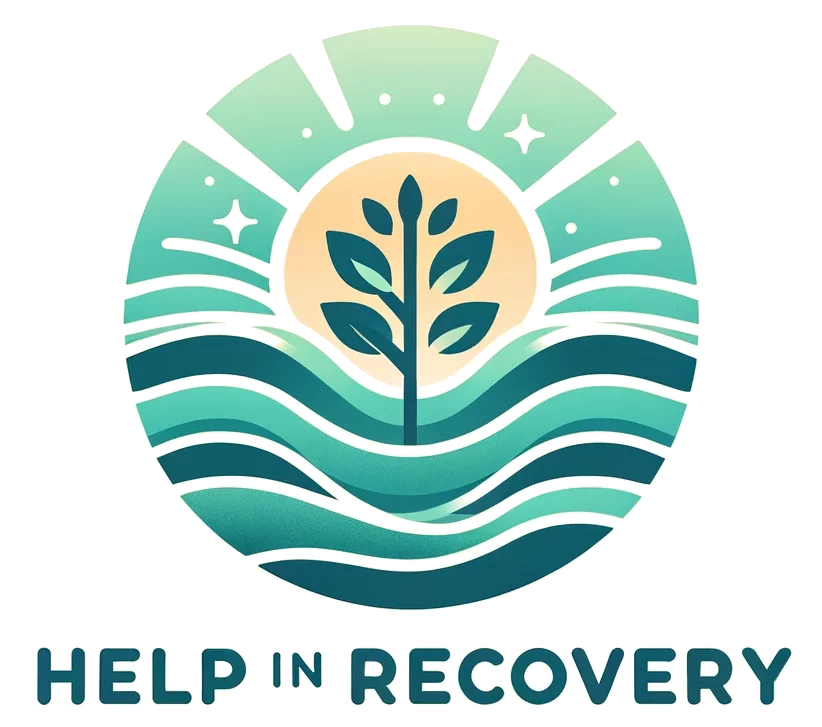Do I Have a Drinking Problem? Understanding the Line Between Social Drinking and Abuse
Introduction
Alcohol is a standard fixture in many social settings, from casual gatherings to significant celebrations. It’s often enjoyed responsibly, but for some, what starts as occasional social drinking can quietly cross into the realm of abuse. If you’re reading this, you might wonder about your drinking habits. The line between “just another drink” and a potential problem can be blurry, making it hard to self-assess.
This article aims to shed light on this sensitive topic, offering a compassionate and informative guide to help you understand where you stand. Whether you’re in recovery, contemplating it, or simply questioning your relationship with alcohol, we’re here to provide insights and support. Remember, asking yourself, “Do I Have a Drinking Problem?” is a brave first step towards self-awareness and, if needed, recovery.
If you are reading this, please take heart: I was in your position two and a half years ago. It has been a challenging, fantastic journey since, and I have no regrets about being able to stop drinking.
Key Takeaways
| Aspect | Takeaway |
|---|---|
| 1. Understand Alcohol Use vs. Abuse | Learn the difference between casual drinking and abuse. |
| 2. Signs of Alcohol Abuse | Recognise the warning signs of alcohol abuse. |
| 3. Self-Assessment: Do I Have a Drinking Problem? | Reflect on your drinking habits. |
| 4. Impact of Drinking on Health and Life | Understand the health and personal consequences of alcohol abuse. |
| 5. Seeking Help: Recovery Pathways | Explore different ways to seek help and support for recovery. |
| 6. The Importance of a Support Network | Discover how a supportive environment enhances recovery. |
| 7. Success Stories and Motivation | Find inspiration from those who’ve overcome alcohol addiction. |
| 8. Motivational Takeaways | Learn valuable tips for a successful recovery journey. |
| 9. Conclusion | Recap the importance of acknowledging the problem and seeking help. |
Understanding Alcohol Use vs. Abuse
When it comes to alcohol, understanding the difference between casual or social drinking and alcohol abuse is crucial. While alcohol is a standard part of many social settings and cultures, its impact varies significantly based on how it’s consumed.
What Constitutes Normal Alcohol Use?
Moderate drinking is generally considered a safe consumption level for most adults. As health guidelines suggest, this typically means up to one drink per day for women and two for men. Regular use often includes:
- Drinking at social events without the intent to become intoxicated.
- Consuming alcohol with food can mitigate its effects.
- Choosing to drink occasionally rather than as a regular habit.
However, it’s essential to recognise that even moderate drinking isn’t safe for everyone. Factors like individual health conditions, medication interactions, pregnancy, or a history of addiction can all influence how ‘normal’ alcohol use is defined.
Signs of Alcohol Abuse
The transition from everyday drinking to alcohol abuse can be subtle and gradual, making it hard to notice until significant problems arise. Here are detailed signs of alcohol abuse:
- Drinking More or Longer Than Intended: This often starts with one more drink but escalates. You might find yourself drinking more significant amounts or for a longer duration than you initially planned, unable to stick to your limits.
- Failed Attempts to Cut Back: If you’ve noticed that your alcohol consumption is higher than you’d like and have unsuccessfully tried to reduce it, this could be a sign of developing dependence.
- Excessive Time Spent on Drinking Activities: This includes time spent drinking, planning to drink, buying alcohol, and recovering from its effects. If these activities take up a significant part of your time, it’s a red flag.
- Cravings: Feeling an intense, often irresistible urge to drink or a preoccupation with alcohol indicates a deeper problem.
- Neglecting Responsibilities: When drinking starts to interfere with your ability to meet work, school, or family obligations, it’s a clear sign that alcohol is taking a disproportionate place in your life.
- Continued Use Despite Problems: Persisting in drinking even when it’s causing health issues, emotional distress, or problems in relationships signals abuse.
- Withdrawal Symptoms: Experiencing physical symptoms like shaking, sweating, nausea, or irritability when alcohol effects wear off is indicative of physical dependence.
Self-Assessment: Do I Have a Drinking Problem?
Realising you might have a drinking problem is a significant step towards better understanding and managing your relationship with alcohol. This self-assessment is designed to help you reflect on your drinking habits and recognise potential warning signs.
Reflecting on Your Drinking Habits
To start, it’s essential to look at your drinking patterns honestly. Consider the following questions:
- Frequency and Quantity: How often do you drink, and how much do you consume on a typical occasion? Compare this with the moderate drinking guidelines.
- Motivation for Drinking: Are you drinking to cope with stress and emotions or to avoid problems? Using alcohol as a coping mechanism can be a sign of problematic drinking.
- Impact on Your Life: Has drinking affected your work, relationships, or health? Consider any harmful consequences that your drinking might have caused.
Key Questions to Ask Yourself
Digging deeper, these questions can help you assess whether your drinking might be problematic:
- Do you often drink more or for a longer time than you intended? This might indicate a loss of control over your drinking.
- Have you tried to cut back on drinking but couldn’t? Repeated failed attempts to reduce drinking are a common sign of alcohol dependence.
- Do you spend a lot of time drinking or recovering from drinking? If drinking occupies a significant part of your time and thoughts, it’s worth reassessing.
- Do you experience cravings or a strong desire to drink? Cravings are a hallmark of addiction and shouldn’t be overlooked.
- Has drinking affected your responsibilities at work, home, or school? Neglecting responsibilities because of drinking is a clear indication of abuse.
- Do you continue to drink even though it causes problems in your life? Continuing to drink despite clear negative consequences is a crucial sign of alcohol abuse.
- Do you experience withdrawal symptoms when you don’t drink? Withdrawal symptoms are a clear indicator of physical dependence.
Impact of Drinking on Health and Life
Understanding the broad-ranging effects of alcohol on both physical and mental health, as well as its impact on personal and professional life, is crucial. Alcohol abuse can have far-reaching consequences that extend beyond the individual to affect their loved ones and community.
Physical Health Risks
Excessive alcohol consumption can lead to numerous health issues, some of which can be severe or even life-threatening. Here are key health risks associated with heavy drinking:
- Liver Disease: Including fatty liver, hepatitis, and cirrhosis.
- Heart Problems: Such as high blood pressure, heart disease, and stroke.
- Digestive Issues: Alcohol abuse can cause or exacerbate problems like gastritis and pancreatitis.
- Weakened Immune System: Making the body more susceptible to infections.
- Increased Risk of Cancer: Including liver, breast, mouth, throat, and oesophagal cancers.
Effects on Mental Health and Relationships
The impact of alcohol on mental health and relationships is often profound and can be more challenging to quantify. Here are some of the ways alcohol abuse can affect these areas:
- Mental Health Disorders: Alcohol abuse can lead to or worsen conditions like depression, anxiety, and other mood disorders.
- Cognitive Impairments: Long-term abuse can result in memory loss, decreased cognitive function, and impaired decision-making abilities.
- Strained Relationships: Alcohol abuse often leads to relationship issues, including conflicts with family, friends, and colleagues.
- Work and Financial Problems: It can lead to decreased productivity at work, job loss, and financial strain due to the costs associated with purchasing alcohol and potential legal issues.
The Broader Impact
The effects of alcohol abuse extend beyond the individual, impacting their community and society. This includes increased healthcare costs, lost productivity, and the emotional toll on families and friends.
Seeking Help: Recovery Pathways
Acknowledging that you might have a problem with alcohol is a significant step, and seeking help is the next crucial one. There are various pathways to recovery, each offering unique support and resources. Finding the right approach for you is vital to a successful journey towards sobriety.
Professional Help and Therapy
Engaging with professionals who understand the complexities of alcohol addiction can provide the guidance and support needed for recovery. Here are some options:
- Addiction Counselors: Specialists who provide one-on-one therapy focusing on behaviour and coping strategies.
- Treatment Centers: These facilities offer comprehensive programs that include detoxification, therapy, and support in a structured environment.
- Medical Assistance: In some cases, medication can be prescribed to manage withdrawal symptoms and reduce cravings.
Support Groups and Community Resources
The support of others who have experienced similar struggles can be invaluable. Here are some community-based options:
- Alcoholics Anonymous (AA): A well-known support group that offers a 12-step program and regular meetings.
- Online Forums and Groups: For those who prefer digital interaction or require more flexible support options.
- Local Community Health Services: Often provide resources and referrals for individuals seeking help with alcohol issues.
The Importance of a Support Network
Recovery is often more successful with a strong support network. This can include family, friends, colleagues, and healthcare professionals. A supportive environment can significantly enhance the effectiveness of other treatment methods.
Success Stories and Motivation
One of the most powerful tools in recovery is hearing and learning from the experiences of those who have successfully navigated their way through it. These success stories not only provide motivation but also tangible proof that overcoming alcohol addiction is possible.
Overcoming Challenges
Recovery is rarely a straight path; challenges and setbacks often mark it. However, these hurdles are a normal part of the journey. Sharing stories of individuals who faced and overcame these obstacles can be incredibly inspiring. Here are some key themes often found in success stories:
- Resilience in the Face of Relapse: Learning from relapse and using it as a stepping stone for further growth.
- Finding Strength in Vulnerability: The power of opening up and seeking help.
- Transformative Life Changes: How recovery led to positive changes in personal and professional life.
The Rewards of Recovery
The journey to recovery brings many rewards, both big and small. Some of these include:
- Improved Health and Wellbeing: Both physical and mental health often significantly improve.
- Restored Relationships: Rebuilding trust and connections with family and friends.
- New Perspectives and Opportunities: Many find new hobbies, interests, or career paths.
Motivational Takeaways
- It’s Never Too Late to Start: Recovery can begin at any stage.
- One Day at a Time: Focusing on small, daily achievements makes the goal more attainable.
- The Power of Community: Embracing support from others can be a game-changer.
Conclusion
In conclusion, this article has explored the nuanced question of “Do I Have a Drinking Problem?” by examining the signs of alcohol abuse, offering a guide for self-assessment, discussing the impacts on health and relationships, outlining the pathways to recovery, and sharing motivational success stories.
If you see yourself in any of the signs or scenarios described, consider reaching out for help. Remember, acknowledging the problem is the first and perhaps the most critical step toward recovery. With the proper support and resources, overcoming alcohol addiction is not just a possibility but a reachable goal.
Remember, you’re not alone on this journey; there’s always hope.
Certainly, Chris! Here’s the FAQ section without the Q and A headings:
Frequently Asked Questions (FAQ)
How do I know if I have a drinking problem?
Assess your drinking habits honestly, considering frequency, quantity, and impact on your life. Look for signs of abuse mentioned in the article.
Can moderate drinking be problematic for some people?
Yes, even moderate drinking may be unsafe for individuals with certain health conditions or a history of addiction.
What are the health risks of alcohol abuse?
Health risks include liver disease, heart problems, weakened immunity, increased cancer risk, and mental health issues.
Where can I seek help for alcohol addiction?
Options include addiction counsellors, treatment centres, medical assistance, support groups like AA, and community health services.
How can I build a strong support network for recovery?
Involve family, friends, colleagues, and healthcare professionals. Their support is crucial for success.
Are relapses common in recovery?
Relapses can occur, but they are a normal part of the journey. Learn from them and continue working towards sobriety.
What are some rewards of alcohol recovery?
Rewards include improved physical and mental health, restored relationships, new opportunities, and personal growth.
Is it too late to start the journey to recovery?
It’s never too late to begin. Recovery can start at any stage of life.







